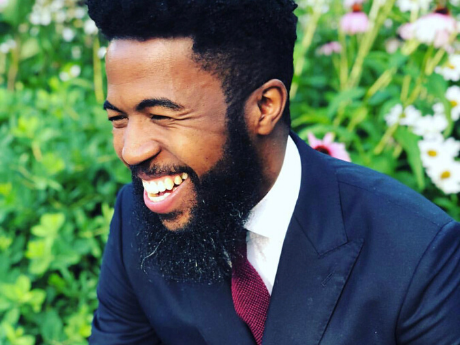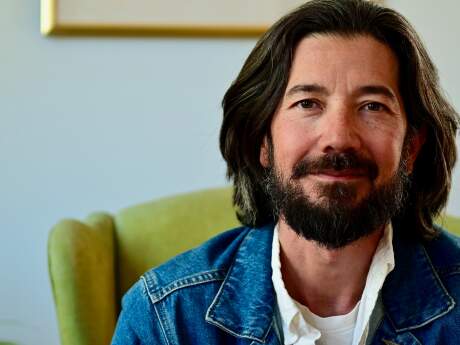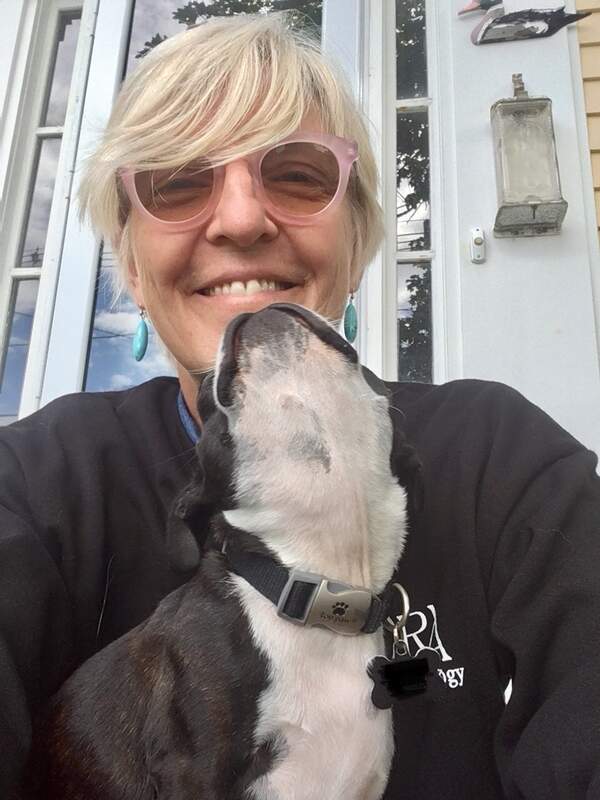Stopping By
Stopping by with Joshua Bennett

During this extraordinary moment—of both pause and activism—we asked writers, musicians, curators, and innovators to reflect on the power and memory of language, shared spaces, and this moment in time. Subscribe to the PSA newsletter for more Stopping By responses and to keep updated with the PSA.
Dr. Joshua Bennett is the Mellon Assistant Professor of English and Creative Writing at Dartmouth College. He is the author of three books of poetry and literary criticism: The Sobbing School (Penguin, 2016)—which was a National Poetry Series selection and a finalist for an NAACP Image Award—Owed (Penguin, 2020), and Being Property Once Myself (Harvard University Press, 2020). Dr. Bennett has received fellowships from the National Endowment for the Arts, the Massachusetts Institute of Technology, the Ford Foundation, and the Society of Fellows at Harvard University. He has recited his original works at venues such as the Sundance Film Festival, the Clinton Global Citizen Awards, the NAACP Image Awards, and President Obama’s Evening of Poetry and Music at the White House. His first work of narrative nonfiction, Spoken Word: A Cultural History, is forthcoming from Knopf.
What is the last thing that moved you?
So many things! Derecka Purnell’s stunning essay: “How I Became a Police Abolitionist.” This Land Abounds with Life by the Fabian Almazan Trio. Toni Morrison’s 1995 Howard University graduation speech, “Racism and Fascism.” Frank Ocean’s Endless. In a slightly different register, my wife and I are re-watching the entirety of Avatar: The Last Airbender together whenever we have free time, and that’s been fantastic.
What is a poem, book, or piece of art that changed your life?
Charles Chesnutt’s The Conjure Woman changed my life, in that it was one of the first pieces of writing I encountered which helped me make the connection between my own commitment to black freedom struggle, and the reality that that struggle is inextricable from what I’ve described elsewhere as a kind of planetary stewardship, a shared commitment to care for the earth. Chesnutt helped me understand that the enforced, historical proximity between black people in the Americas and nonhuman life-worlds could actually be a site of collaboration, and radical imagining, rather than despondence or shame. This has had a tremendous impact not only on my writing as a scholar and poet—my first work of literary criticism, Being Property Once Myself, explores this phenomenon at length—it has also had a major impact on my spiritual practice and political imagination.
What is a book you think everyone should read or a piece of art everyone should encounter?
I think everyone should read both June Jordan’s Civil Wars and Camille Dungy’s field-shifting anthology, Black Nature: Four Centuries of African American Nature Poetry. These are books that give you a proper sense of the scale and scope of what people of conscience are truly up against, while also showcasing the tremendous, ineradicable beauty that is precisely what we must fight so hard to defend.
What is your first memory of poetry?
My first memories of poetry are some collision of the Pentecostal ministers of my youth, my father praying in a quiet voice for the congregation at Messiah Baptist church, and Christmas parties in the South Bronx where my grandmother would recite long poems from memory as a few of us gathered around her in the living room, listening. Poetry was inextricable, in those earliest days, from black social life. Whether it was inside or outside the church, the point of poems was that they brought people together. If my mom heard an especially beautiful line during a sermon, she would say “that’s my word for the week.” The Word was a kind of an armor you could carry with you. That framing had a tremendous impact on my practice as a writer and thinker.
The pandemic has emptied many public spaces (libraries, concert halls, museums, parks, transit systems, etc.). What space—and community—do you miss the most?
I miss the café most. That and the movie theatre, which is where I would always go to celebrate when something wonderful happened, or else when I was feeling especially down and nothing else seemed to help. Losing those spaces that have been so central to both my practice as a writer and my general well-being has been complicated. But they’re relatively low on the list when I think about loss during this time. What I miss most are people.
Public space is rife with words—signs, logos, advertisements. If you were to choose one poem or text to inscribe in a public place right now, what would that be? And where would you place it?
I would inscribe the following lines from William Carlos Williams on the side of a library: “I have learned much in my life / from books / and out of them / about love / Death / is not the end of it.”
Have you thought differently about the role and power of language and art in the wake of murder of George Floyd, Breonna Taylor, and the wide-spread protests?
The State-sanctioned killing of black people by police, security guards, and vigilantes has been a core concern of my writing, my emotional and political life, since I was a teenager. And even before that, really. Long before I had the language of abolition, my experiences with officers made me an abolitionist. As a child, when we were harassed by security guards at school, or had bus drivers threaten to call the cops and arrest us for how we behaved on the ride home. I first heard the name Amadou Diallo when I was 11 years old. Growing up, I thought often about not just the frequency, but the genuine absurdity, the utter strangeness, of these particular forms of violence.
My thinking about the power of language and art in this moment has not necessarily been transformed, so much as I am a bit more hopeful, however foolishly, that a time has come in which we can truly commit to a rigorous accounting of what precisely all this writing is for. My hope is that we might better describe the relationship our work has, or should have, to the people doing the bulk of the dying and suffering in the street. If those concerns only make it into the poems when there is a kind of international flash point, like this one right now, then that demands a certain level of reflection. When we turn to the page, are we committed to creating a respite, a haven, a mirror, a galvanizing call, for the people we love? What does this moment demand of us? And can we meet that demand with the sort of dignity, moral courage, and clear sense of purpose that is required?
Have you created something during the lockdown, or are you working on anything now?
I’m currently putting the final touches on a number of projects. The first is a cultural history of spoken word poetry in the United States that is forthcoming from Knopf. The second is a book-length poem. I’m also recording the audiobook for my second collection of poems, Owed, which will be out on September 1. Finally, we are expecting a little one in the coming months, so I’m brainstorming different ways to decorate the nursery, while also practicing a bit of amateur carpentry. I started with small figurines, but by 2023 the goal is to build a treehouse. Wish me luck.


